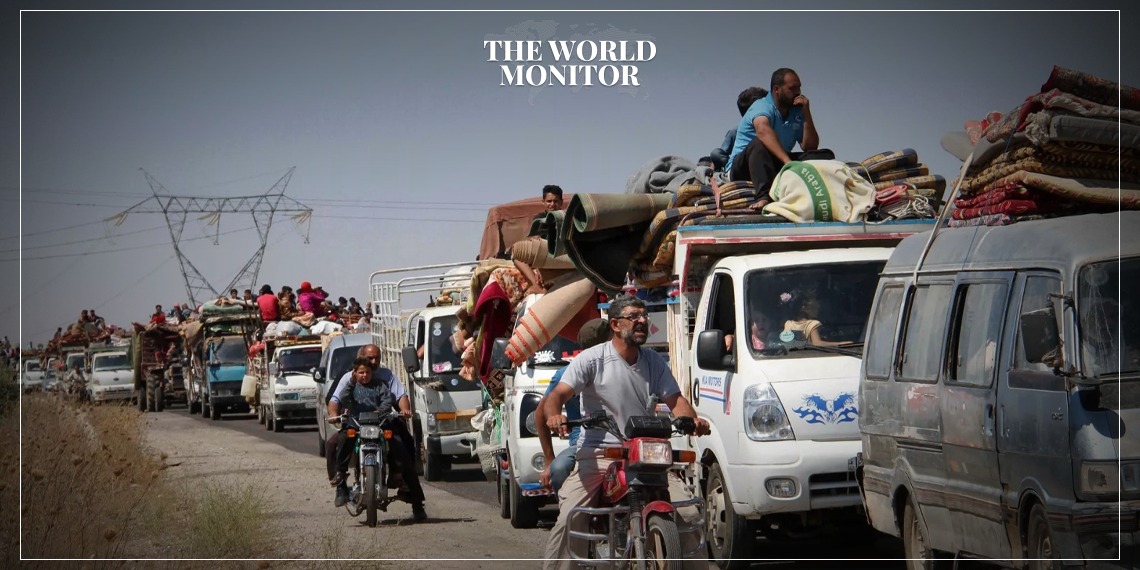Lebanon’s Minister of Displaced in the caretaker government, Issam Sharafeddine, stated that the Syrian displacement to Lebanon carries economic, social, educational, and security burdens for the country. In media statements yesterday, Tuesday, Sharafeddine announced that Lebanon would resume organizing convoys for the repatriation of Syrian displaced back to their country, a process started two years ago.
The Lebanese minister noted the disproportionate number of Syrian displaced relative to Lebanon’s population. He explained, “There are about 2.2 million Syrians with Lebanon’s population at 4.5 million,” according to the “Arab World News Agency.”
He highlighted that this comes amid a severe economic crisis Lebanon is undergoing, which exacerbates the state of collapse due to economic, environmental, social, educational, and security burdens.
Sharafeddine called for a meeting to bring together Lebanon, Syria, and the UN High Commissioner for Refugees to find a solution to this crisis. He also demanded international and regional pressure on donor countries to provide the necessary aid to Syrian displaced within Syria’s interior. Lebanon has been grappling with the Syrian displacement crisis since 2011, with the Lebanese General Security estimating the number of Syrians in Lebanon to be over two million refugees, most of whom lack legal documentation, while the UN refugee agency reports about 840,000 registered “refugees.”
According to official data, approximately 50,000 Syrian displaced have voluntarily returned to Syria following the resumption of the return process, which had been halted for three years due to the COVID-19 quarantine measures.
Lebanese authorities and international organizations like UNHCR, WFP, and UNICEF have noted that the vast majority of Syrian refugees in Lebanon live in extreme poverty, facing harsh living conditions without adequate shelter, rising food costs, and limited access to education and healthcare. The socio-economic downturn, coupled with the impacts of COVID-19 and the Beirut port explosion, has deepened the crisis. As a result, many refugees resort to negative coping strategies, such as reducing food intake, pulling children out of school, or engaging them in child labor to survive.
Furthermore, the presence of such a large number of refugees has strained Lebanon’s infrastructure and increased tensions within the country. While there are ongoing efforts to provide relief, the scale of the crisis demands substantial international support and effective local governance to manage both the needs of Syrian refugees and the host communities.






